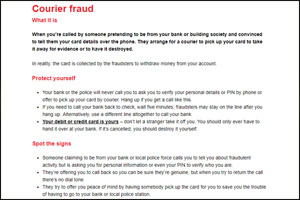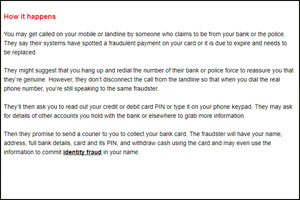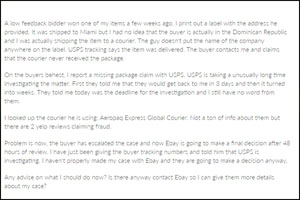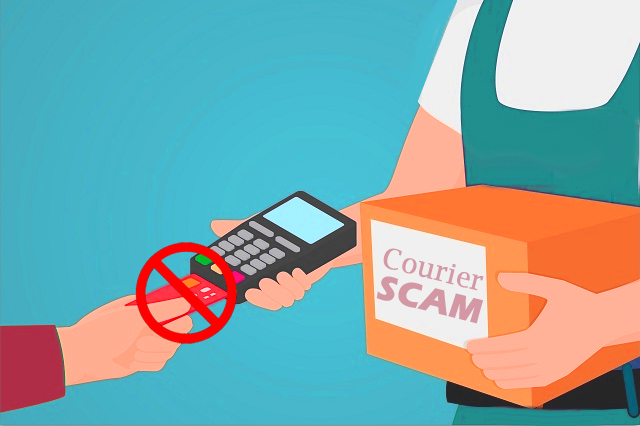Courier Scams
Courier scam

In order to capture attention, crooks often try to execute their mission by imitating the name of a professional company or brand. Stealing the identity of a reputed business from official websites, they target well-known organizations favored by fraudsters. This gives con artists a higher chance of trapping a naïve user. As such, they may claim to be from a renowned courier company or use similar names—be on your guard at all times. Don’t be fooled!
Courier scams are deceptive schemes where fraudsters impersonate courier or delivery companies to trick individuals into handing over money, valuables, or sensitive information. They often target vulnerable or elderly individuals. The scam typically involves a phone call or email claiming that there is a package or important document to be delivered, but a fee or payment is required upfront. The victim is urged to provide payment details or cash to the fake courier, who may arrive at the victim’s doorstep. In some cases, the fraudsters use coercive tactics or create a sense of urgency to pressure the victim. Once the payment is made, the scammer disappears with the money, and no delivery ever takes place. To protect against courier scams, individuals should be cautious of unsolicited requests for payments or personal information. Verify the legitimacy of any delivery or courier service directly with the company using contact information from official sources. If in doubt, consult with trusted friends or family members and report suspected scams to the relevant authorities.

In general, a courier card scam involves con artists trying to swindle you into handing over your bank-related information by pretending to be from your bank. Targeting elderly residents, reports say that “a victim was asked for their PIN and told that a police officer was en route to collect the card.”
Never share your bank details such as PIN, card details, or online/telephone banking login credentials with anyone.
If you receive any call asking for your bank details, hang up immediately.
Be on your guard with unexpected calls and always verify; if possible, use a different phone line. In the absence of a second line, try calling someone with a familiar voice—scammers will find it difficult to mimic someone you recognize easily.
Use Ripandscam to stay updated on new scams. This will help guide you in the right direction and prevent you from being deceived by fraudsters.
To avoid courier scams, individuals should be vigilant and follow these precautions:Verify the Sender: Always verify the legitimacy of unexpected packages or parcels. If you receive a package you weren't expecting—especially one that requires payment or personal information—be cautious. Contact the alleged sender directly using official contact information, not details provided in the suspicious message.
Beware of Unsolicited Communication: Be wary of unexpected emails, messages, or calls informing you about a package delivery. Scammers often use these methods to trick individuals into revealing personal information or making payments.
Never Share Personal Information: Avoid providing personal or financial details to unknown or unverified sources. Legitimate courier companies will never request sensitive information through unsolicited communication.
Check for Red Flags: Watch for signs of a scam, such as misspelled words, poor grammar, or suspicious email addresses. Be cautious of generic or vague messages that lack specific details about the package or sender.
Do Not Pay for Unsolicited Packages: If you receive a package you didn’t order, do not pay for it or any associated fees. Scammers may attempt to pressure you into making payments for fake deliveries.




